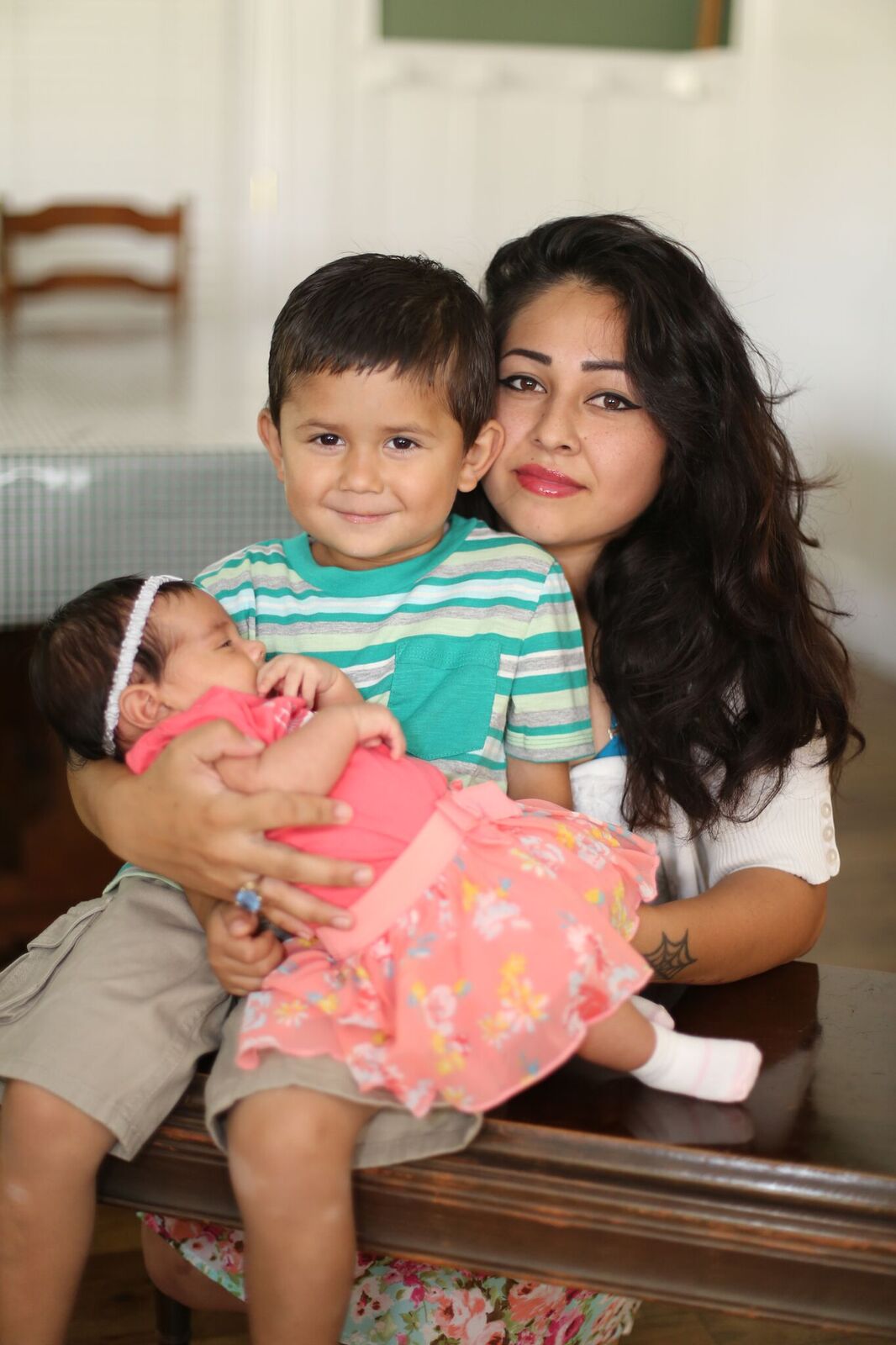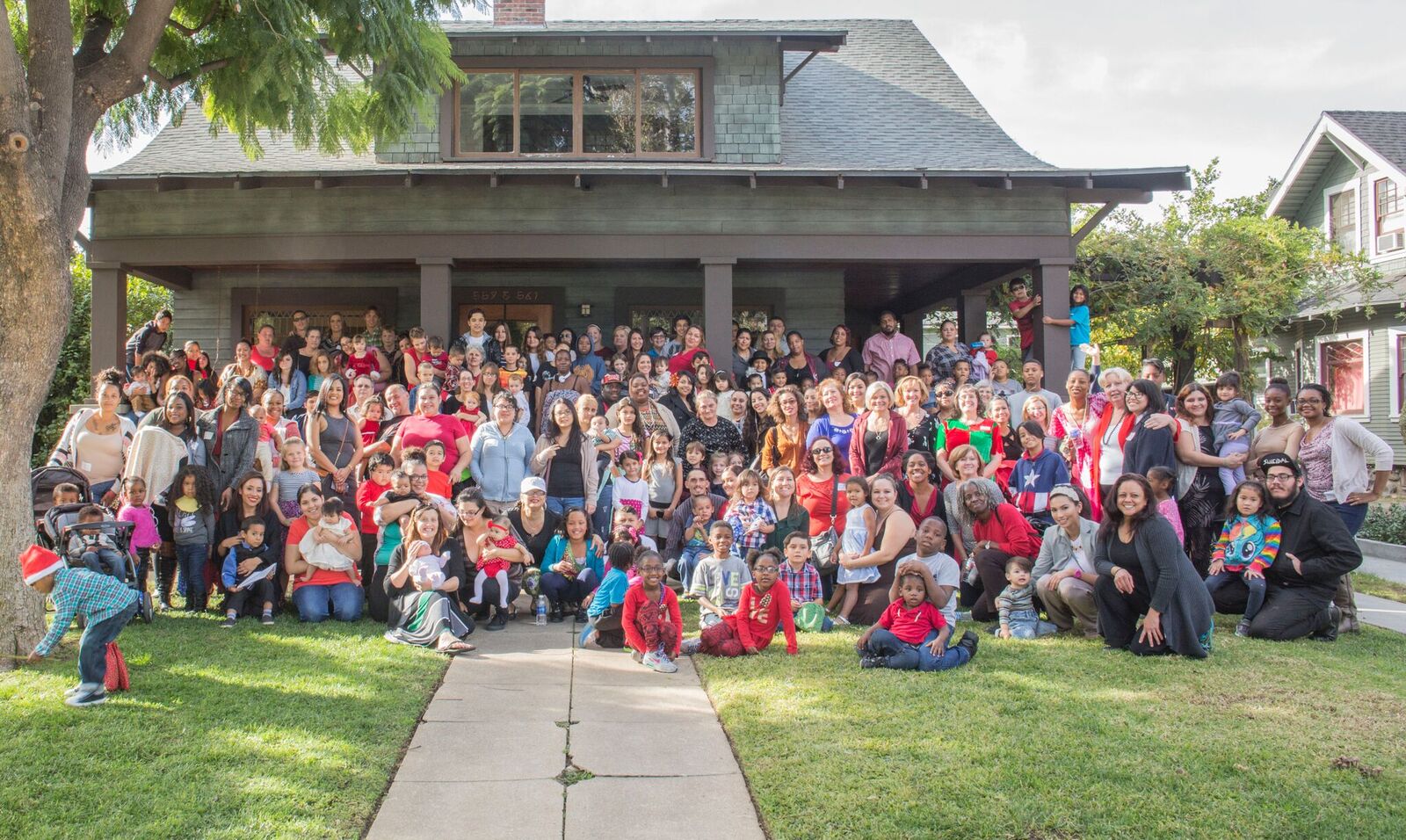In September 2016, Tendai (last name withheld due to privacy reasons) found herself homeless and sleeping on Hollywood Boulevard. She was pregnant at the time.
Originally from East London, the 27-year-old had fled Britain after receiving threatening letters and calls for two years.
“The police were aware of it, but things got worse when I became pregnant, so I fled the country,” she explains.
Things, however, didn’t improve upon landing on American soil.
“Upon arriving in Los Angeles, I ended up homeless and sleeping on Hollywood Boulevard. It was on the 7th day whilst sititng at a local McDonald’s, wondering what the next step could be, I got the Elizabeth House number from 211. I had spoken to various shelters that would not take pregnant girls and women,” she says.
Elizabeth House, which is based in Pasadena and has a motto of “Where Love Embraces Life”, is committed to ending the cycle of homelessness and abuse in women and children through comprehensive case management, counseling, educational classes, prenatal care, and resources throughout pregnancy and beyond.
The non-profit was founded by Debora J. Unruh, an ordained pastor and who has extensive early childhood education training and certification. In 1993, as the head of a task force commissioned to evaluate the needs of women in the greater Pasadena area.
She discovered the true needs of women in that area when she, herself, was giving birth.
“I was in the hospital about to give birth to my son,” Unruh tells us. “In another room I heard the cries of a woman about to lose her newborn because of her homelessness and drug addiction. I asked to be disconnected from my IV and went into the woman’s room to comfort her. This was the moment that propelled me and the rest of the task force to focus all attention on providing shelter to homeless, pregnant women in need of comprehensive care and support.”
 In the years since its inception, Elizabeth House, has successfully done just that — to date, the organization has helped 312 women and 442 children, providing them with shelter and family-focused support for pregnant women and their children in a nurturing atmosphere.
In the years since its inception, Elizabeth House, has successfully done just that — to date, the organization has helped 312 women and 442 children, providing them with shelter and family-focused support for pregnant women and their children in a nurturing atmosphere.
For Tendai, it changed her life. She has been at Elizabeth House since September and gave birth to a beautiful baby girl named Tino, which she describes as a “magical” moment.
“When I made my way to the U.S, and before coming to the house, I honestly was petrified to be alone during labor and delivery,” she says. “It’s such a blessing that this program provides mentors and birthing coaches. I had my mentor (and now godmother to my daughter) Kate, and our birthing coach, Jessica. They literally were with me every moment of the three days I was in labor and delivery. It’s still hard to believe that people who barely knew you, who didn’t want anything at all from you, could step into your life in such a way.”
Tendai credits Elizabeth House with helping her put her life back together.
“The classes are run by professional doctors in therapy, professionals in childcare, attachment and bonding classes by counsellors, money/budget classes with Financial Advisers, and health care classes by registered nurses, have all been the core foundation into the education of motherhood,” she says. “Saving the best for last, the Elizabeth House staff, mentors and volunteers continue to walk alongside us, stepping in with prayer as well as physical resources. The schedule and savings requirements have helped me to become a lot more responsible with my time, and with any resources available to me.”
And, she is eternally grateful for their continual support.
“Tino and I have no biological family here. I didn’t have any friends out here. I don’t know where my baby and I would be if we didn’t have Elizabeth House to lean on, and now I have them be a sturdy, God-fearing and obedient, shoulder to lean on,” she says.

Elizabeth House has a rate of less than 3% who return to homelessness.
Tendai recounted her story of kindness and hope and how it changed her life at Elizabeth House’s 14th Annual Benefit Gala. She spoke of her desperation when she first got to Elizabeth House.
“Pregnant and having nowhere to live, no job and only a few dollars, she recounted how she tried as much as possible not to look homeless once she approached our location,” Unruh says. “This speaks to the fact that women in need do not take their life circumstances lightly, but they are willing to do what is necessary to get their lives back on track. Today, she is a proud mother to a beautiful baby girl and we are helping her to maintain her progress.”
And, the organization helps women beyond just their stay there.
Unruh continues: “Unfortunately, many of the women who come to Elizabeth House have issues of domestic violence, trauma, substance abuse and a history with the foster care system (whether for themselves in the past, or for their children). And these are only a few of the struggles they face. These facts often create difficult circumstances that are heart-rending for both mothers and children, and for staff. Elizabeth House does its best to walk alongside families to holistic recovery, placing emphasis on self-care and healthy parenting in order to end the cycle of abuse and neglect.
“Every woman and child receives therapeutic services at Elizabeth House, that is, individual, group and mother/infant therapy. Elizabeth House has placed a high priority on maternal mental health which has significant benefits for children.
“A wide variety of classes and workshops are available to both residents and alumni to help with parenting, job readiness and placement, anger management, financial responsibility, domestic violence and many other areas of interest and need.
“The Residential and Alumni programs are designed to anticipate the needs of women as their lives transition from instability to security and purpose. Elizabeth House encourages all its women to face the reality of their lives as well as to make plans to fulfill their dreams—for themselves and their children. Our hope is to empower women to live their best lives.”

Hope is a theme that is fundamental to Elizabeth House’s core.
“Hope, the theme of the Elizabeth House 2017 Gala this past April, is one of the pillars of Elizabeth House,” Unruh says. “As a faith-based organization, from the moment a women walks through our doors for an interview, we listen to their life circumstances and express the real hope we have for their futures. We take their dreams seriously, and with a lot of love and support, do our best to ensure that they leave with the best tools to continue to grow into the women and mothers they desire to be.
“Elizabeth House shows kindness through its hard work and dedication to the details of every life that we are privileged to support. We train staff and volunteers to be patient, loving and understanding about the difficult journey ahead.
“Kindness and hope go a long way to fulfilling the mission of Elizabeth House. We do not take for granted the support received from civic groups, private foundations and individual donors. Instead, we are extremely thankful for every kind of support received.
Hope is something Tendai wants to instill in others who may be in the dire straits she previously was in.
“There is hope!” she says. “I sat in McDonald’s for that whole seven days, I thought God had truly forgotten about me. But in stepped Elizabeth House.”
Her hope for the future is to “get a steady job where I can utilize the Quick Books Online Accountancy certification I have acquired through the Elizabeth House.”
Tendai adds: “My hope is to be steady on my feet so I can properly look after my daughter.”
As for what kindness and hope mean to Tendai?
“Grace,” she says. “It means being non-judgmental. It means walking alongside someone and encouraging them no matter how many times they stumble or fall. It means seeing a situation that seems like there is a no way out, and holding hands to pray for God to somehow make a way. To show up, emotionally, spiritually, physically and physically, not so we get the glory, but so others may know God through us.
“I have done nothing to deserve the kindness I have received from this program, but that’s what has given me hope; hope to become a better person, mother, sister, daughter, friend, and someday, wife.”
Unruh also urges each and every one of us to be non-judgmental.
“One of our alumni expressed that her abuser told her no-one would ever take both her and their kids if she ever left—that no-one cared,” she explains. ” And she believed him, that is, until someone told her about Elizabeth House. It is important for the public not to judge women who are in domestic violence situations. This will increase their isolation and reinforces the hopelessness felt. There are many reasons a woman may choose to stay in an abusive home. But with encouragement, discretion and the kind of help that goes the distance, they can build the courage to make better choices for themselves and their children.”
You can help create hope for these women and children by donating to Elizabeth House, HERE. To learn more, click HERE and to volunteer, click HERE.



